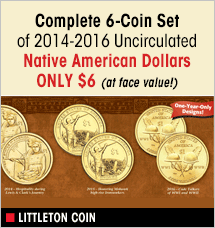Dollar Sense
Life Insurance Is Vital for Many, But Beware the Pitfalls

A recent 60 Minutes episode told a surprising tale of life insurance companies that you need to know. You may have a life insurance policy that your beneficiaries don’t know about, for whatever reason. And you probably assume that when you die, they’ll get a nice surprise in the form of a check. But according to 60 Minutes, that may not be true.
“Audits of the nation’s leading insurance companies have uncovered a systematic, industry-wide practice of not paying significant numbers of beneficiaries,” said 60 Minutes correspondent, Lesley Stahl.
Bad Practices
In most cases, when the beneficiaries filed a claim, the benefits are paid out, said, investigators. But if no claim is filed, the policy may be canceled and the benefit is kept. The news gets worse when the policy has cash value, often called a nest egg. When a living policyholder with a nest egg policy stops paying premiums or misses a premium, the company can take the premium out of the policy’s cash value. That’s a good thing.
The problem is, companies that had reason to know the policyholder had died did not try to contact beneficiaries, but continued paying itself premiums out of the cash value. Once the cash value was depleted, they simply canceled the policies, said investigators. Some of the policies were actually marked with notations of the date of death.
When you know the policyholder is dead, that’s “tantamount to stealing,” said Kevin McCarty, the Florida Insurance Commissioner, whose office led the investigations. Insurance companies defend the practice by saying it’s up to the beneficiary. In many cases the beneficiaries were unaware of the policies.
Now that they’ve been exposed, 25 of the nation’s biggest companies have agreed to pay out more than $7.5 billion to the beneficiaries, or to the states where they reside. Then it’s up to the states to contact the beneficiaries. Another 35 companies still haven’t agreed. One Chicago-based insurer, Kemper, is fighting the hardest to not pay beneficiaries. Kemper operates in Florida, California, and Illinois. McCarty says in response to this problem, Florida has passed a law that requires companies to track policyholders who have died, using the Social Security Death Master File. Then they must try to reach the beneficiaries. Some of the policies, says McCarty are worth a million dollars or more, but most are for a few thousand each. Some of the policies date back as far as the 1970s.
Should You Avoid Life Insurance?
Overall, says the American Council of Life Insurers, companies are doing a good job. The problem lies with the 1% that aren’t getting paid.
What should you do? If you have a life insurance policy, make sure your beneficiaries know who they are. If you don’t feel comfortable with that, let someone know who you can trust to inform beneficiaries at the right time. Life insurance remains an important backstop between your loved ones and financial disaster.
Teresa Ambord is a former accountant and Enrolled Agent with the IRS. Now she writes full time from her home, mostly for business, and about family when the inspiration strikes.








































































